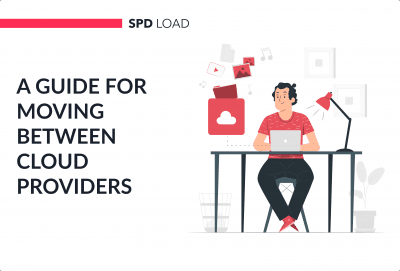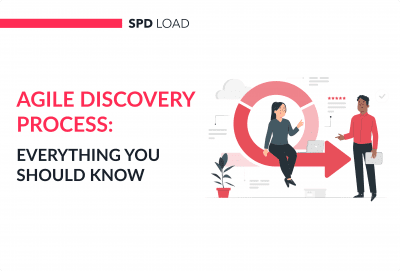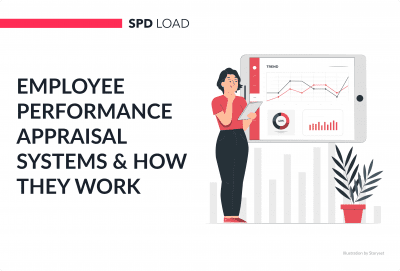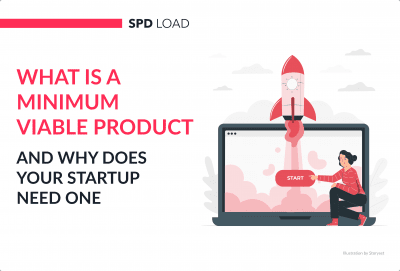What is a Startup? (Definition, Types and Examples)
- Updated: Aug 27, 2024
- 9 min
Along with “MVP in business” and “Agile,” the term startup is now commonly used in both casual and business discussions.
Despite their growing popularity, most people might find it challenging to define these terms or explain their main features accurately. Many confuse the startup with a small business. However, these are completely different ventures.
At SpdLoad, we have been working with startups for over 10 years now. In fact, we have helped founders create MVPs that raised over $300 million in funding. I’m happy to share all I know from working with startups and as a part of multiple startups across various industries.
Here, we explore what a startup is, how it is different from other business models, and how startups operate. We also provide some valuable information that will help you decide whether a startup is the right choice for you.
Unlock your startup potential now — start transforming your vision into a scalable solution with our expert developers today!
What is a Startup?
So, what is a startup? First thing I would like to point out is that a small business is not a startup. That is the main thing you need to know. There is a huge difference between a startup and a small business.
I would like to use the definition by Steve Blank. He is a Silicon Valley entrepreneur and a Stanford Business School professor. In his opinion, a startup is an organization that searches for a repeatable and scalable business model. The small businesses, in turn, run under the fixed business model.
This information is vital in distinguishing. The startup founders are in charge of providing the vision of the product. Thus, they consider the most suitable business model for a startup. They take into account the company’s established budget, target audience, and distribution. Small business owners, in their turn, focus on steady revenue, local market needs, and operational sustainability, often prioritizing profitability over rapid scaling.
Startups often prioritize venture capitalists’ funding and exponential expansion, while small businesses tend to rely on organic revenue and long-term stability. Understanding this distinction between what is a startup and what is a small business is key for aspiring entrepreneurs choosing their path.
How Startups Operate
Another important thing I want to mention is that startups are not only defined by the ideas they have. Sometimes I meet people who talk about startup founders from the wrong perspective. They imagine rich people launching startups for fun, or they think of young people in a fancy office, who play video games and come up with several interesting app ideas. But I want to put all these misconceptions to rest.
If you want to understand what startups really are, you need to look at how they work in the first place.
Any startup begins with an idea and a gap in a certain market niche. Usually, it’s a 1-3 founders dream. They want to embody it and share it with the entire world.
The founders bear responsibility for the key operations. They do everything possible to give life to their idea. While the team, if there is one, means a lot, the main idea and focus of the company always run on its founders.
The main difference between startup and small business is their way of looking at the idea. Small businesses usually aim at an idea that can be applied at a certain location and market niche. Startups, in turn, set insights on an idea that is globally adaptable.
Startups are usually self-funded and are entirely independent. Often, startup founders also look for angel investors or venture capitalists to raise capital and build a working product.
There are several main aspects of running a startup I want to mention here.
Startups and Innovation
The first thing that comes to my mind when I hear the word startup is innovation. It happens for a good reason.
When we talk about startups, we do hear the phrase “disruptive innovation” once in a while. I am confident that the innovative approach is the key feature of any startup company. Most of them come into the market with a fresh, innovative idea to cover customer-specific needs.
Some startups find a room for innovations even without having a unique product. They can develop new markets or innovative channels to distribute an existing product.
Indeed, the startups are not about young programmers or entrepreneurs. They don’t define your age, but only your ideas and approach. Once you stop being innovative, you stop being a startup.
But in order to effectively bring these innovations to life, the founder needs to effectively build a startup project management. It’s the backbone that turns vision into reality.
Solving Pain Points
Every startup solves a problem and make our world a better place to live in. If you have an idea, look into the way it can become a useful product or service.
Focusing on Growth
Startups are companies that need to grow fast. They create a product to introduce it into the large market and have as many sales as possible.
A fast growth focus is a distinctive feature between startups and small businesses. The last ones may prefer to stay small and be happy about it. Startups are designed to grow and scale.
That is the main reason the majority of startups are tech-oriented. The technology startups are able to reach a large market. It happens because they offer products anytime and anywhere. They are more likely to face rapid growth and, thus, become more attractive for investors.
Dealing with Uncertainty
Startups always face uncertainty. It happens because their innovative ideas and approaches lack a business model. Any new business is a risky venture. Yet, a startup’s future in particular depends on various internal and external factors.
A startup business usually comes with more questions than answers. It has no defined business model or a certain way to scale. Startups are always about experimenting and testing various theories.
Culture of Experimentation & Speed
Startups move fast, often “fail fast, learn faster.” They embrace risk and pivot when needed (e.g., Slack started as a gaming company).
Finding Product-Market Fit
Usually, small businesses already have a sense of their product-market fit. For example, a small restaurant often knows its audience and understands what the market expects. Startups, on the other hand, are still figuring that out. They’re constantly testing, iterating, and refining, which is why our services, like startup web development, often focus on flexibility, rapid feedback, and user-centered design to help uncover that ideal audience and meet their needs.
The startup founders keep searching for a suitable product-market fit. They track the key metrics like LTV (customer lifetime value), CAC (customer acquisition cost), and average sales cycle length.
What a Startup Is Not
To understand the definition of a startup, it is better to use reverse logic. Here are some aspects of any non-startup businesses.
Stage of the Product
Startup companies usually start from scratch. They have only an idea of the product, or their product is at the earliest development step. If the company deals with an existing product, it is not a startup.
Business Model
There are various franchise companies or companies with copied business models. They are not startups. The startup business model remains eccentric for a long time. It is unknown until the founders find a suitable one for their product.
Number of Employees
A startup company usually doesn’t have many employees. There is no particular data on how many employees a startup should have. But this number cannot exceed 100.
4 Types of Startups
Steve Blank is confident that the first step the founders should take is to find out what type of startup they are. In his opinion, there are four types of startup businesses. They have very different requirements to become successful.
Entering an Existing Market
Startups can enter an existing market, offering a more efficient solution. It means that your product is similar to the competitor’s, but is better. In this case, the market is easy to evaluate. You know its users and, what is more important, your competitors.
Creating a New Market
Startups can also create a brand new market. They can introduce something that was never created before. Otherwise, they can lower the price of a similar product to attract a new class of users.
The main advantage of creating a new market is having no competitors. The only thing to be aware of is that other startups are picking up your idea. However, there are also disadvantages — there are no defined users and market. The main problem here is not facing the competition. It lies in ensuring your customers that your product is worth paying for.
Resegmenting as a Low-Cost Competitor
Startups can re-segment an existing market as a low-cost entrant. Thus, you can offer customers a similar solution, but at a lower cost.
Resegmenting into a Niche
Startups can also re-segment an existing market as a niche player. You can enter the existing market by offering solutions to cover customers’ specific needs.
Understanding the market types of startups helps you to evaluate customer needs. Thus, you find a way to supply the customers with your product. Steve Blank says that every startup company should keep testing its product. It has to ask itself, “What kind of startup are we?”
Is A Startup Business Model Right For You?
Deciding whether a startup business model is right for you depends on your goals, risk tolerance, skills, and resources. Here’s a structured way to evaluate if the startup path aligns with your ambitions:
1. Assess Your Goals
Choose a startup if you:
- Aim to scale rapidly and disrupt an industry.
- Want to build a high-growth, high-impact company (possibly with global reach).
- Are comfortable with delayed profitability (focusing on growth first).
Avoid a startup if you:
- Prefer stable, predictable income from day one.
- Want a lifestyle business (e.g., local shop, consultancy).
- Aren’t interested in seeking investors or rapid expansion.
2. Evaluate Your Risk Tolerance
Startups are high-risk:
- ~90% of startups fail, often due to running out of cash or poor product-market fit.
- You may need to work long hours with uncertain pay (especially in the early stages).
- Equity (ownership) is a big motivator, but it could end up worthless if the startup fails.
Traditional businesses are lower-risk:
- Revenue starts earlier (e.g., freelancing, retail).
- Less dependency on investor funding.
3. Consider Funding & Resources
Can you secure capital?
- Startups often require external funding (venture capital, angel investors).
- If you can’t attract investors, bootstrapping may limit growth.
Do you have the right skills?
- Startups need versatility — you’ll wear many hats (sales, product, marketing).
- Strong networking helps (investors, mentors, technical co-founders).
4. Industry & Market Fit
Startups thrive in:
- Tech-driven sectors (AI, SaaS, fintech, biotech).
- Emerging markets with unsolved problems.
- Scalable business models (software, digital products, platforms).
Traditional businesses work better for:
- Local services (restaurants, salons, real estate).
- Niche markets with steady demand (e.g., plumbing, accounting).
5. Lifestyle & Commitment
Startups demand:
- Long hours (especially in the early stages).
- High stress (uncertainty, pivots, investor pressure).
- Delayed rewards (success can take years).
Traditional businesses offer:
- More work-life balance (once established).
- Steadier income (if well-managed).
6. Exit Strategy
Startup exits:
- IPO, acquisition, or mergers (big potential payouts).
- If successful, financial rewards can be life-changing.
Traditional business exits:
- Selling the business or passing it down.
- Less explosive growth but more predictable outcomes.
Quick Self-Assessment Checklist
✔ I’m comfortable with high risk for high reward.
✔ I want to build something scalable, not just earn a living.
✔ I can handle uncertainty and financial instability.
✔ I’m willing to pitch to investors and give up some control.
✔ My industry is innovation-friendly (tech, SaaS, etc.).
A lean startup may NOT be for you if:
- You need immediate, stable income.
- You dislike fundraising or rapid pivots.
- You prefer a hands-off, slow-growth approach.
Final Verdict
If you’re ambitious, adaptable, and risk-tolerant, a startup could be a thrilling journey. But if you value stability, predictable income, and work-life balance, a traditional small business or freelance career may be a better fit.
Successful Startup Examples
Many successful businesses that we know and love once started as startups. Here are three startups that are examples of innovative and helpful solutions.
Uber
Once started as a startup, Uber has become one of the most famous unicorn companies ever. The company’s founders had an innovative unicorn startup idea, a business plan with a strong focus, and realistic expectations.
Uber is no longer a startup, but many startups want to be the next Uber. Wondering if that is possible? Check out how much it costs to build an app like Uber.
DropBox
The story of the Dropbox startup is just about making our lives better. The startup founder, Drew Houston, experienced the gap in the market himself. He was always forgetting his USB flash drive at home. Thus, he came up with an idea on how to make his own life easier. As a result, helped thousands of people and grew a $10 billion company.
Airbnb
No one thought that such an idea as Airbnb would become successful and profitable. But while the investors were skeptical, the founders knew their emerging business idea would work. They believed in their product so much that they even started selling the breakfast foods under their brand to raise money. That is what I call an innovative approach. Today, Airbnb is a successful company known worldwide.
Ready to test your startup idea? Learn everything about how to launch an MVP successfully.
Next Steps
Starting something new in the modern business world, overcrowded with ideas, can be scary. But you’ll never get ahead if you don’t take risks.
With technology moving so fast these days, timing matters more than ever. If you wait too long, someone else may make your idea happen before you do.
If you’ve got an idea for a tech startup, act on it now.
Our experienced developers and designers can help turn your idea into a real product.
Schedule a free call with us to start mapping out your idea!












